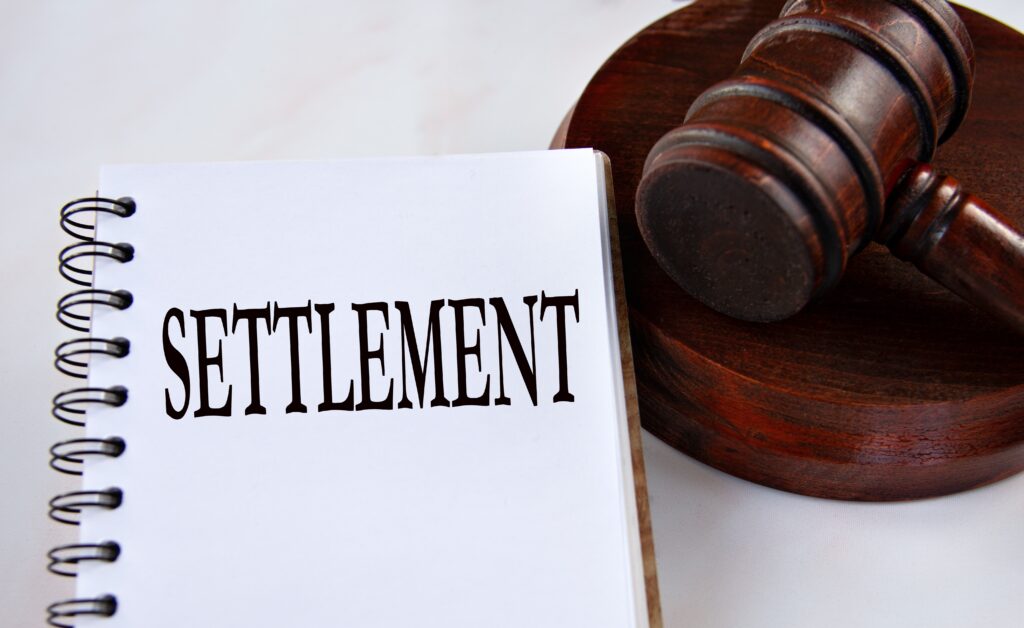Accidents can be painful and traumatic experiences that leave individuals both physically and emotionally injured. If you have recently been involved in an accident and are considering filing a personal injury claim, one of the first questions that may come to mind is, “How much is my claim worth?”
Determining the value of an accident injury claim is a complex process that takes various factors into account, such as medical expenses, lost earnings, pain and suffering, and future medical needs. To better understand the potential value of your claim, you will want to consult with a knowledgeable personal injury lawyer who can carefully evaluate the specifics of your case. They can provide the guidance and support you need to navigate this challenging time. Remember, each case is unique, so seeking legal advice tailored to your situation is in your best interest. Contact a Boca Raton personal injury lawyer near you to discuss the details of your accident injury claim and ensure you receive the compensation you deserve.
Reach Out Today!
Understanding Personal Injury Claims
A personal injury claim arises from negligence, which is the failure to act with reasonable care. Negligence can occur in various situations, leading to accidents that result in injuries. Some common types of accidents that lead to personal injury claims include car, truck, and motorcycle accidents, slip and falls (premises liability cases), workplace injuries, and medical malpractice or defective product claims.
To file a personal injury claim, you must be an injured victim or acting on behalf of an injured person, such as a guardian or representative in wrongful death claims. Personal injury law allows victims to seek compensation for damages due to someone else’s negligence.
Factors That Determine the Value of an Injury Claim
Several factors are taken into consideration when determining the value of an injury claim. These factors include:
Medical Expenses

Medical expenses encompass the past, present, and future costs related to the injury. This includes hospital stays, surgeries, doctor visits, rehabilitation, medications, and other medical treatments necessary for recovery. Clearly, documenting these expenses is imperative for calculating the value of an injury claim.
Lost Earnings and Loss of Earning Capacity
Compensation for lost earnings is a significant component of an injury claim. If the accident causes you to miss work, you are entitled to seek reimbursement for the income you would have earned during that time. Additionally, if your injuries prevent you from returning to work or earning as much as you did before, you may be eligible for compensation for the loss of future earning capacity.
Pain and Suffering
Pain and suffering refers to the physical pain, emotional distress, and mental anguish experienced as a result of the accident and injuries. Courts and insurance companies use various methods to calculate the value of pain and suffering, considering the severity of the injuries and their impact on the victim’s daily life.
Severity and Permanence of Injury
The severity and permanence of the injury also play a critical role in determining the value of an injury claim. More severe injuries, such as catastrophic injuries or permanent disabilities, tend to result in higher settlements.
Insurance Policy Limits
Insurance policy limits can also impact the value of an injury claim. Insurance coverage often determines the maximum amount an insurance company will pay for a particular claim. If the claim exceeds the policy limits, the injured victim may need to seek additional compensation from the at-fault party or their own insurance company, if applicable.
Economic vs. Non-Economic Damages in Injury Claims
In personal injury claims, damages are categorized as either economic or non-economic.
Economic Damages
Economic damages refer to the tangible financial losses incurred as a result of the accident and injuries. These damages may include medical bills, hospital stays, rehabilitation costs, medications, lost earnings, and property damage such as vehicle repairs or replacement costs.
Non-Economic Damages
Non-economic damages are more subjective and represent the intangible losses suffered by the victim. These damages include pain and suffering, emotional distress, loss of enjoyment of life, and permanent disability. In wrongful death claims, non-economic damages may also include loss of companionship.
Hiring personal injury attorneys use various methods to calculate these damages, considering each case’s circumstances. They consider factors such as the severity of the injuries, the impact on the victim’s life, and the long-term consequences.
How Insurance Companies Determine Settlement Offers
Insurance companies play a significant role in personal injury claims. They evaluate the claim, negotiate settlements, and ultimately determine the amount of compensation offered to the injured party.
Insurance adjusters often employ tactics to minimize payouts and protect the insurance company’s interests. They may downplay the severity of injuries, dispute liability, or pressure claimants into accepting low settlement offers. Be cautious when dealing with insurance companies, and do not take the first offer without consulting an attorney.
Insurance companies commonly use two methods to calculate non-economic damages:
Multiplier Method
The multiplier method involves multiplying the medical expenses by a certain number, typically ranging from 1.5 to 5. The specific multiplier reflects the extent of the pain and suffering endured by the injured party.
Per Diem Method

The per diem method assigns a daily dollar value to pain and suffering until the injured party has reached maximum medical improvement or fully recovered. The value is determined based on factors such as the severity of the injuries and the impact on the victim’s life.
Injury victims and their families should be aware that insurance companies may initially offer low settlement amounts in the hope that the injured party will accept without contesting. Consulting with a personal injury lawyer can help you understand the true value of your claim and negotiate a fair settlement.
The Role of a Personal Injury Lawyer in Maximizing Compensation
A personal injury lawyer plays a substantial role in maximizing the compensation you receive for your injury claim. They have the knowledge and experience to thoroughly evaluate your case and calculate the full value of your claim, taking into account all potential damages.
An attorney’s primary responsibility is to advocate for your rights and best interests throughout the claims process. They negotiate with insurance companies on your behalf to increase the settlement offers and secure the compensation you deserve. Additionally, personal injury attorneys gather evidence, such as medical records, testimony, and accident reports, to support your claim and build a strong case. If necessary, they can represent you in court to pursue higher compensation.
Most personal injury attorneys work on a contingency fee basis, meaning you only pay if you win your case. This arrangement allows individuals who may not have the financial means to hire an attorney upfront to still have access to legal representation. It also motivates attorneys to strive for the maximum compensation, as their fee is typically a percentage of the final settlement amount.
Common Mistakes That Reduce Injury Claim Value
When dealing with personal injury claims, it is essential to avoid common mistakes that can negatively affect the value of your claim. These missteps can give insurance companies the leverage they need to reduce or deny compensation, making it harder for you to recover the full amount you deserve.
Delaying Medical Treatment
Seeking medical attention immediately after an accident is imperative for your health and claim. Insurance companies may argue that your injuries are not as severe as claimed if you wait too long to seek treatment. Additionally, delayed medical care can make it difficult to link your injuries directly to the accident, giving the insurer a reason to question the legitimacy of your claim. Follow all doctor’s recommendations, attend all necessary follow-up appointments, and keep detailed records of your treatment and expenses.
Giving Recorded Statements to Insurers
Insurance adjusters may seem sympathetic, but their goal is to protect their company’s bottom line. If you provide a recorded statement without legal guidance, they may use your words out of context to downplay your injuries or suggest that you were partially at fault. Even simple statements like “I’m feeling better” can be misinterpreted to minimize your compensation. It is best to consult with an attorney before speaking with insurance companies.
Posting on Social Media
Many people do not realize that insurance companies monitor social media for evidence that can undermine an injury claim. Posting pictures of yourself engaging in physical activities, attending social events, or even smiling in photos can be used to argue that your injuries are not serious. Even if your profile is private, insurers may still find ways to access your posts. The safest approach is avoiding social media while your case is ongoing.
Accepting a Low Settlement Too Soon
After an accident, insurance companies often rush to offer a quick settlement in hopes that victims will accept a lower amount before realizing the full extent of their damages. Many injury victims make the mistake of accepting a settlement before reaching maximum medical improvement (MMI)—the point at which a doctor determines that no further recovery is expected. If you settle too soon, you cannot request additional compensation for future medical expenses, lost earnings, or ongoing pain and suffering. Always consult a personal injury attorney before accepting any offer.
Not Documenting Evidence Properly
Strong evidence is the foundation of a successful injury claim. Many victims fail to gather and preserve critical evidence after an accident. To strengthen your claim:
- Take clear photos of your injuries, vehicle damage, and the accident scene.
- Obtain a copy of the police report and witness statements.
- Keep records of medical expenses, lost earnings, and pain levels in a journal.
Failing to document your injuries and accident details properly can make it easier for the insurance company to dispute your claim.
Not Hiring a Personal Injury Attorney
Navigating a personal injury claim without legal representation can be overwhelming and significantly reduce your compensation. Many victims believe they can handle the process on their own, only to be met with lowball offers, denied claims, or insurance company tactics designed to minimize payouts. An experienced personal injury lawyer can:
- Handle negotiations with insurance companies.
- Gather and preserve valuable evidence to strengthen your claim.
- Calculate the full value of your damages, including medical expenses, lost income, and pain and suffering.
- Take your case to court if necessary to fight for the compensation you deserve.
By avoiding these common mistakes and seeking legal guidance early, you can protect your claim and ensure you receive fair compensation for your injuries. If you have suffered an injury in an accident, contact a personal injury attorney today to discuss your case.
How Long Does It Take to Settle a Personal Injury Claim?
The duration of a personal injury claim varies depending on several factors, including:
Severity of Injury and Length of Medical Treatment
The more severe the injury and the longer the medical treatment required, the longer the claim may take to settle. It is important to reach maximum medical improvement before attempting to settle your claim to ensure proper compensation for all your medical expenses.
Complexity of Liability Disputes
If there are disputes regarding liability, such as multiple parties involved or conflicting accounts of the accident, the claim may take longer to resolve. These cases often require extensive investigation and evidence gathering.
Willingness of Insurance Companies to Negotiate

The process can be significantly prolonged if an insurance company is unwilling to negotiate in good faith or disputes the claim entirely. Pursuing litigation may be necessary to achieve a fair settlement in such cases.
While some personal injury claims may settle relatively quickly, others can take months or even years to reach a resolution. Remember to exercise patience and trust your attorney’s guidance throughout the process.
Did You Suffer an Accident Injury? Contact a Personal Injury Lawyer Today
Accident victims deserve fair compensation for their physical, emotional, and financial damages. To ensure you receive the compensation you deserve, make it a priority to seek legal help before dealing with insurance companies.
Contact a personal injury lawyer today to discuss the details of your accident injury claim and receive a free case evaluation. A seasoned personal injury lawyer can assess the specifics of your case, calculate the potential value of your claim, and guide you through the legal process. Don’t hesitate to protect your rights and receive the compensation you are entitled to